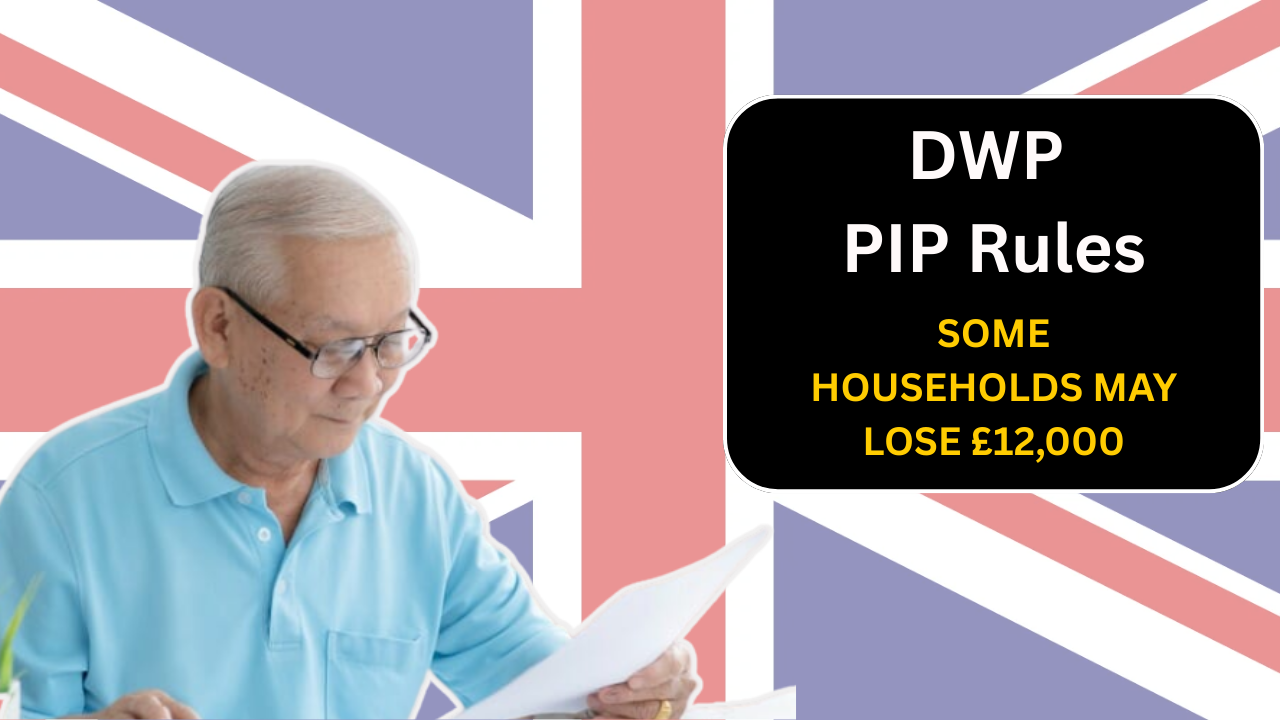Changes to the Personal Independence Payment (PIP) eligibility under the Department for Work and Pensions (DWP) could result in some claimants losing as much as £12,000 annually, potentially leaving thousands of people struggling with their finances.
According to estimates by the DWP, around 800,000 people might lose out on the daily living component of PIP under proposed rule changes.
The government’s expected revisions will see an average annual loss of £4,500 for affected claimants by the year 2029/2030. However, there are concerns that some households could lose much more, with some potentially facing an annual income reduction of up to £12,000.
Understanding the Changes
PIP is designed to assist people who have long-term health conditions or disabilities, providing financial help for those who need support with daily living tasks and mobility.
The daily living part of the payment covers things like preparing food, managing medicines, and social engagement. The mobility component, on the other hand, helps with getting around, which may include assistance with transportation.
The DWP has stated that the proposed changes would tighten the eligibility for the daily living part of PIP, a move that would affect many existing claimants. This means that individuals who rely on this financial support could find themselves no longer qualifying for these payments or receiving less than before.
The Impact on Claimants
For many, PIP is not just a payment, but a gateway to additional support. The loss of PIP eligibility could lead to the loss of other benefits that many households depend on, such as Carer’s Allowance.
According to Liberal Democrat MP Steve Darling, the combined loss of PIP and Carer’s Allowance could cost families a substantial amount. “Under the proposals, several households could lose £12,000 if they lost PIP and Carer’s Allowance at the same time. That would be massive,” he remarked.
The current higher rate for PIP is £5,740.80 annually, while Carer’s Allowance pays £4,331.60 a year. If claimants lose both of these benefits, their income could drop by more than £10,000 annually. The total income loss would likely increase after the benefit increase next year, reaching the £12,000 figure predicted by Mr. Darling.
How Much Could People Lose?
The situation could become even worse for some households, according to figures from The Joseph Rowntree Foundation. The charity’s analysis shows how the changes could leave families with significant financial burdens.
If a family loses both the higher daily living component of PIP and the health-related element of Universal Credit, they could be out of pocket by almost £1,000 per month. Over a year, this would add up to a staggering £12,000 in lost income.
The health-related element of Universal Credit is currently set at £97 for existing claimants, but under the proposed changes, it will be frozen at this rate.
For new claimants, the health-related element will be reduced to just £50. Families who qualify for this support but lose out on PIP may see their total benefits sharply reduced, exacerbating financial struggles.
What Are the Proposed Changes to PIP?

The changes being discussed include a new, more stringent set of qualifying criteria for the daily living element of PIP. At present, claimants only need to score eight or more points across the ten daily living activities to qualify for the lower rate of £73.90 per week, and 12 or more points to receive the higher rate of £110.40 per week.
Under the proposed changes, however, claimants will need to score at least a four across the 10 daily living activities to qualify for the daily living portion of the benefit.
While this change might appear to be minor, it could have a profound impact on many individuals who rely on PIP for financial support. Those who fail to meet the new thresholds could lose their entitlement to the benefit entirely or receive a lower amount.
The Potential Consequences for Families
The government has assured that the changes are aimed at making the system fairer, but many charities and campaigners argue that they will have devastating consequences for vulnerable families.
A family where a person loses out on both PIP and Carer’s Allowance could see a drastic reduction in their annual income. As a result, many will struggle to afford basic living costs, such as food, housing, and utilities.
Additionally, some experts argue that these changes may lead to more people relying on emergency support services, further burdening the welfare system.
Others have warned that the reduction in benefits could negatively affect the mental and physical well-being of claimants, who already face significant challenges due to their disabilities or long-term health conditions.
Public Reaction and Government Response
The proposed changes have sparked significant backlash from various quarters, with many calling for the government to reconsider its plans. Disability rights activists and charities have voiced their concerns, arguing that these changes would push many people into poverty.
Some MPs have also spoken out against the proposals, demanding that the government reconsider the cuts and take the needs of vulnerable people into account.
In response to the public outcry, the government has maintained that the changes are necessary to ensure fairness and sustainability within the benefits system.
A spokesperson for the DWP stated that the new criteria are designed to ensure that PIP is more focused on those with the most severe needs, although many believe that this could result in discrimination against those with moderate disabilities or health conditions.
What Does This Mean for the Future?
As the proposed changes are set to come into effect in November next year, the true impact on households will not be fully understood until then. Many claimants are anxious about the potential loss of income and the consequences it could have on their lives.
For some, the loss of £12,000 a year would represent a significant financial blow, and for those who rely on PIP and Carer’s Allowance to support their families, the changes could be devastating.
It is clear that these changes will affect many vulnerable people across the country, and it is important that the government takes steps to mitigate the impact on those who stand to lose the most.
As the changes approach, it will be crucial for individuals to stay informed about their rights and to seek support from charities and advocacy groups if they are affected by the cuts.



